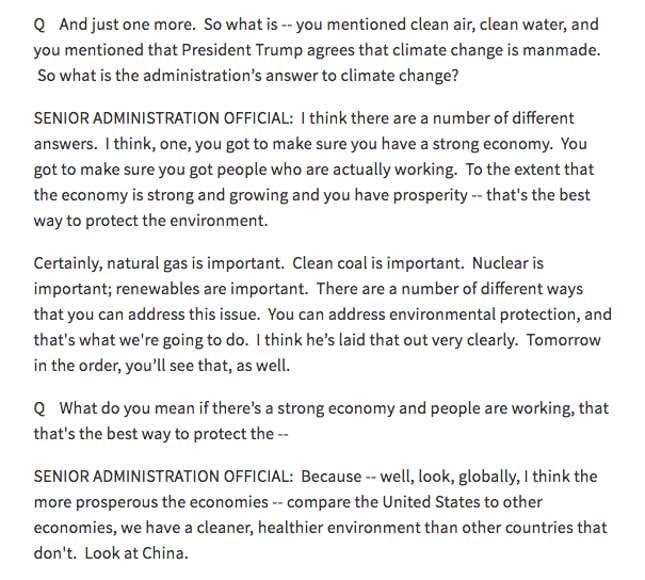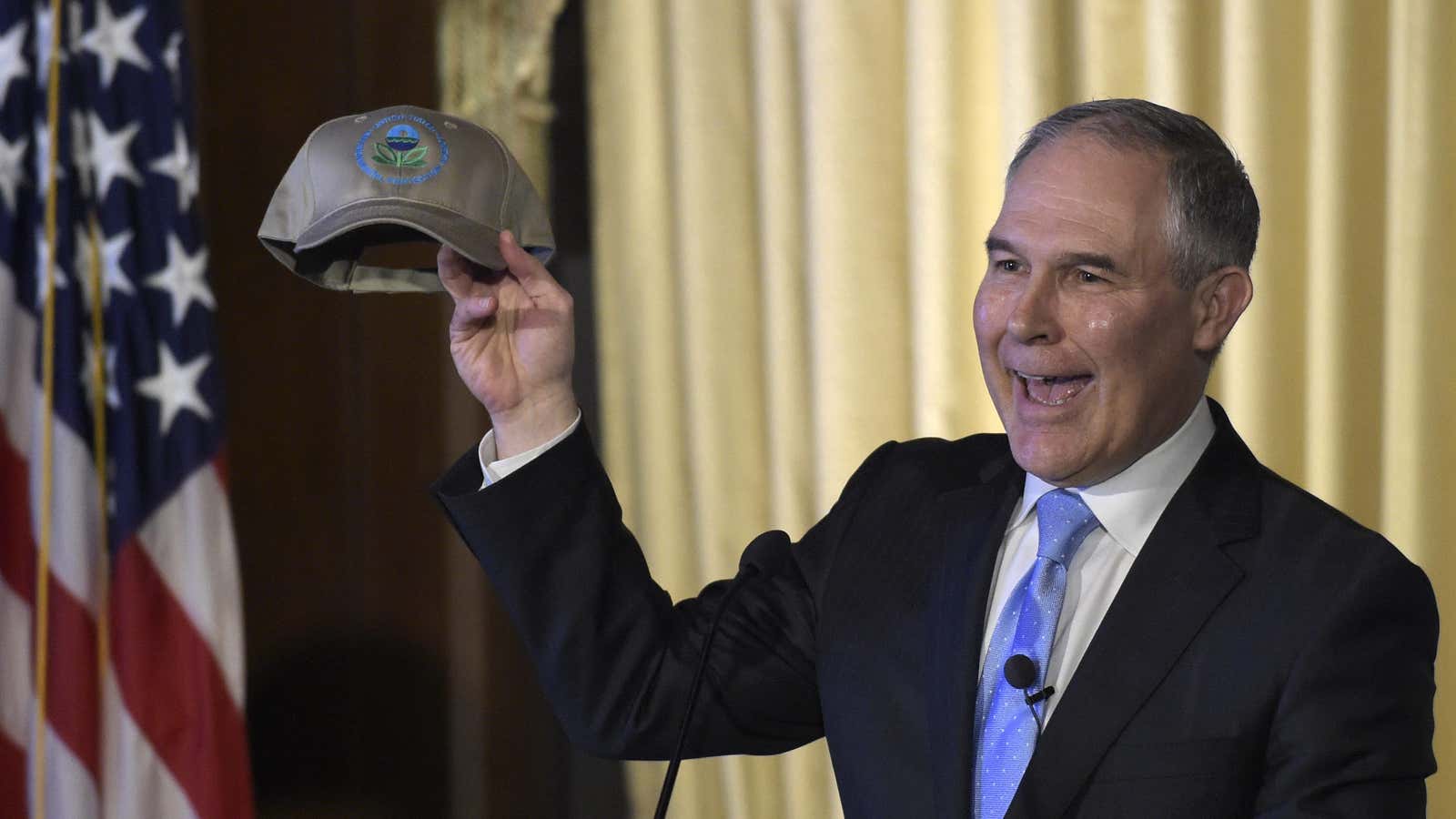The evening before US president Donald Trump signed his executive order to dismantle many of the policies meant to reduce emissions of greenhouse gases and pollution from fossil fuels, an unnamed senior White House official spoke to reporters about the rollbacks.
After the official acknowledged Trump does in fact agree that humans have a hand in the changing climate, one reporter asked what the administration intends to do about climate change. The official responded that having a strong economy is the solution, rather than environmental regulation. That, the official said, was the reason the US has a cleaner environment than China.
“Because—well, look, globally, I think the more prosperous the economies—compare the United States to other economies, we have a cleaner, healthier environment than other countries that don’t,” the official said. “Look at China.”
The US does have a “cleaner, healthier” environment than China—but that’s thanks to a rigorous set of anti-pollution regulations installed in America since the 1970s. The Clean Air Act, for example, is responsible for the US avoiding the pollution-filled skies found in China’s big cities. That major piece of regulation is expensive to implement, but the economic value of its benefits adds far more to the economy than the rule takes away—the economic benefits actually outstrip the costs 30-to-one, according to government analysts, in part by preventing some 160,000 premature deaths a year.
China, meanwhile, has a booming economy that threatens to eclipse the US’s, yet China’s prioritization of economic growth over environmental protection produced its infamous air pollution problem.
Meanwhile, other “more prosperous” economies in Europe, like Germany, are expanding their economies just fine with more stringent environmental regulation than the US has ever seen. The World Bank concluded that Germany shows how countries can “view environmental policies as a way to facilitate economic growth rather than a cost that slows economic development.”
The benefits of energy-efficiency rules and clean-power programs are passed to workers, too; clean-energy jobs surpassed oil and gas-drilling jobs in the US for the first time last year, and job growth in the solar energy sector was 12 times faster than that of overall economy.
The complete exchange with the Trump administration official is below, and the full transcript of the call with reporters is here.

Reporter: And just one more. So what is—you mentioned clean air, clean water, and you mentioned that President Trump agrees that climate change is manmade. So what is the administration’s answer to climate change?
Senior administration official: I think there are a number of different answers. I think, one, you got to make sure you have a strong economy. You got to make sure you got people who are actually working. To the extent that the economy is strong and growing and you have prosperity—that’s the best way to protect the environment.
Certainly, natural gas is important. Clean coal is important. Nuclear is important; renewables are important. There are a number of different ways that you can address this issue. You can address environmental protection, and that’s what we’re going to do. I think he’s laid that out very clearly. Tomorrow in the order, you’ll see that, as well.
Reporter: What do you mean if there’s a strong economy and people are working, that that’s the best way to protect the—
Senior administration official: Because—well, look, globally, I think the more prosperous the economies—compare the United States to other economies, we have a cleaner, healthier environment than other countries that don’t. Look at China.
